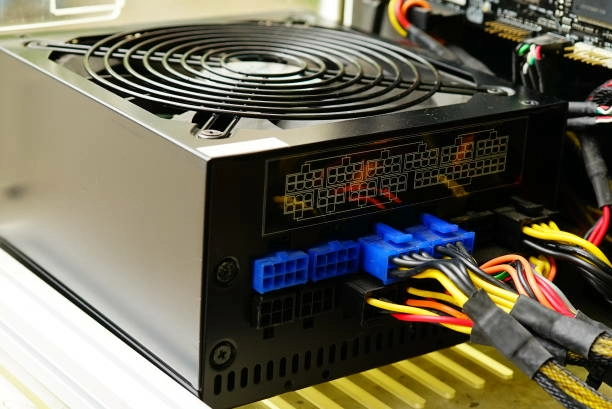Power supplies are the unsung heroes of our IT Hardware. These unassuming devices provide the energy needed to keep our computers, gaming systems, and gadgets running smoothly. However, choosing the right power supply can be a daunting task. In this guide, we'll walk you through the process of buying a power supply, ensuring that you make an informed decision.
Buy Power Supply: Your Definitive Guide
Understanding Power Supply Basics
Before you dive into the buying process, it's essential to grasp the fundamental concepts:
- Wattage Requirements: Determine your device's power requirements in terms of watts.
- Voltage and Amperage: Understand the voltage and amperage specifications for your device.
- Form Factors: Different devices require specific power supply form factors. Know which one suits your device.
Assessing Your Device's Power Needs
To buy the right power supply, you must assess your device's power needs:
- Device Type: Consider if you're purchasing a power supply for a PC, gaming console, or another electronic device.
- Graphics Card: High-performance graphics cards require more power; ensure compatibility.
- Peripheral Devices: Account for the power needs of peripherals like hard drives and optical drives.
Power Supply Efficiency
Efficiency matters for both energy savings and device longevity. Look for:
- 80 PLUS Certification: Higher-rated certifications indicate better efficiency.
- Active PFC: Power Factor Correction helps with efficient power delivery.
Modular vs. Non-Modular Power Supplies
The choice between modular and non-modular power supplies impacts cable management:
- Non-Modular: These power supplies have fixed cables, which can be less tidy.
- Modular: Modular power supplies allow you to attach only the necessary cables, resulting in a neater setup.
Compatibility and Connectors
Ensuring compatibility is crucial. Pay attention to:
- Motherboard Compatibility: Ensure the power supply fits your motherboard.
- Cable Connectors: Check if the power supply offers the right connectors for your components.
- SATA and Molex Connectors: Assess the number of SATA and Molex connectors for your drives and peripherals.
Noise Levels
Quiet operation is essential for a pleasant computing experience. Look for:
- Fan Noise: Choose a power supply with a quiet, efficient fan.
- Zero RPM Mode: Some power supplies offer a mode where the fan doesn't spin under light loads, further reducing noise.
Warranty and Reliability
Invest in a reliable power supply with a good warranty:
- Brand Reputation: Trusted brands often offer more reliable products.
- Warranty Length: Opt for a power supply with a substantial warranty, ideally three years or more.
Cost Considerations
Balancing your budget and power supply needs is essential:
- Budget PSUs: For basic systems, budget power supplies may suffice.
- Quality PSUs: High-end systems demand reliable, quality power supplies.
DIY or Pre-Built Computers
The buying process differs for DIY and pre-built systems:
- DIY: You have complete control over power supply selection.
- Pre-Built: Ensure the pre-built system's power supply meets your device's needs.
FAQs
Q: Do I need a high-wattage power supply for a basic PC? A: No, a basic PC usually doesn't require a high-wattage power supply. Choose one that matches your device's power requirements.
Q: Can I replace my laptop's power supply? A: Yes, you can replace a laptop's power supply, but ensure it matches the original specifications.
Q: What is the 80 PLUS certification, and why does it matter? A: The 80 PLUS certification indicates the power supply's energy efficiency. Higher certifications mean less energy waste and lower operating costs.
Q: Is a modular power supply worth the extra cost? A: Modular power supplies offer better cable management, making them worth the investment, especially in gaming or high-performance PCs.
Q: How can I tell if my power supply is failing? A: Common signs of a failing power supply include random shutdowns, unusual noises, and unstable system performance.
Q: Are generic or off-brand power supplies reliable? A: Generic or off-brand power supplies may be less reliable. It's best to choose reputable brands known for quality and reliability.
Conclusion
IF you Buy power supply you need to understand your device's needs, considering efficiency, and assessing your budget, you can make an informed purchase. Whether you're a PC enthusiast or simply need a reliable power source for your devices, this guide equips you with the knowledge to buy the right power supply.


No comments yet